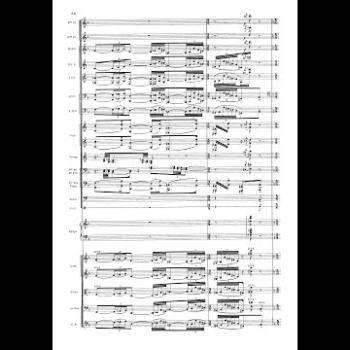Other bloggers have been drawing attention to Wesley Hill’s book, Paul and the Trinity. And you can read some of Hill’s own response to N. T. Wright on the Eerdmans blog, Eerdword. I was recently asked what I thought of it, and didn’t have a copy, and had not read it. But since it was drawn to my attention that Hill interacts with my book The Only True God
, I thought I should check it out from the library and take a quick look.
Diving in at those points where my work was mentioned, I was disappointed to find an unpersuasively succinct attempt to dismiss rather than engage my point about the “one Lord” being added alongside rather than within the Shema in 1 Corinthians 8:6 (pp.116-117). Hill writes, “This interpretation neglects the fact that ‘one Lord’ is not something brought to Deut 6:4, as an additional ‘one’ alongside the ‘one’ God. Rather, κύριος is the divine name in apposition to ὁ θεός in Deut 6:4 itself…κύριος is the name of the ‘one God’…” (p.117).
This view of the Shema, and of the Greek words used in translations of it, seems to me to be badly mistaken. I see no evidence that Jews were confused, in the way that Hill seems to be, as to the nature, meaning, and possible referents of the Greek word κύριος, usually rendered into English as “Lord.” Perhaps Hill comes from a context in which, reading the Hebrew Bible in English, he was brought up to think of LORD rather than Yahweh as the name of God. But as a scholar, he ought to be aware, and to express himself in a manner that reflects the awareness, that this English LORD in all upper case letters, just like the Greek word κύριος in some Greek translations of the Jewish Scriptures, and the verbal substitution of אֲדֹנָי (adonai) in place of the tetragrammaton when reading the Hebrew Bible, are all circumlocutions for the divine name, and not the divine name itself. There are New Testament texts where κύριος serves in precisely this role, such as Philippians 2:9-12 – where it is clear that the divine name is in view, and that it is something bestowed upon Jesus by the one God when the one God exalts him, and not something that Jesus innately possesses. These points about Philippians 2 are themselves not done justice to in the chapters about that text – even though Hill shows he is aware of them, having mentioned my treatment of the passage in his introduction (p.11).
And so even if the title κύριος in 1 Corinthians 8:6 stands for the divine name, other texts make clear that Jesus bears that name because God honored him by bestowing it upon him. And so, if one wishes to use Bauckham’s unhelpful terminology of Jesus “sharing the divine identity” (as Hill does), one can do so, but it must be in terms of God having graciously shared his identity – in the form of his name and sovereignty – with Jesus, who did not previously or inherently share in these things.
As a result of reading Hill’s treatment of the above points, I must say that I am unimpressed with the volume. Hill reads trinitarianism into Paul, and I don’t think anyone was in doubt that it is possible to do that (after more than a millennium and a half of precisely such interpretation). But the volume, in the tiny amount I’ve dived into it, seems to me to offer inadequate treatment of other possible interpretations, and as a result, nothing that would be likely to persuade a reader (or at least, a reader who did not already share Hill’s views) that Paul ought to be read that way, in his own time, context, and first-century Jewish thought world.
Have others read the book? If so, I’d value your thoughts on it, as I’d really like to know whether it is one worth picking up again at some point and reading cover to cover, or whether the rest is no more persuasive than the parts I read.
Of related interest, Crispin Fletcher-Louis’ book Jesus Monotheism : Volume 1: Christological Origins: The Emerging Consensus and Beyond is now available. There is more information on the book website, where you can also purchase a digital copy of the book for much less than the cost of a print copy.















